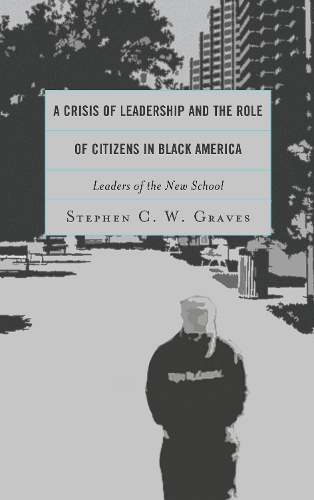
A Crisis of Leadership and the Role of Citizens in Black America: Leaders of the New School
(Paperback)
Available Formats
Publishing Details
A Crisis of Leadership and the Role of Citizens in Black America: Leaders of the New School
By (Author) Stephen C.W. Graves
Bloomsbury Publishing PLC
Lexington Books
23rd March 2018
United States
Classifications
Professional and Scholarly
Non Fiction
Civics and citizenship
Human rights, civil rights
Ethnic studies / Ethnicity
Social and cultural history
305.896073
Physical Properties
Paperback
220
Width 152mm, Height 230mm, Spine 16mm
308g
Description
A theoretical examination of the concepts of the citizen, citizenship, and leadership, A Crisis of Leadership and the Role of Citizens in Black America: Leaders of the New School proposes to develop a prototype or model of effective Black leadership. Furthermore, it examines citizenship habits of the Black community based on their economic standing, educational attainment, participation in the criminal justice system, and health and family structure. It tracks data in these four categories from 1970 to today, measuring effective leadership by the improvement or decline in the majority of African Americans standing in these four categories. This book concludes that African Americans have negative perceptions of themselves as U.S. citizens, which thus produce bad citizenship habits. Additionally, ineffective Black leaders since the Civil Rights era have been unwilling to demonstrate the purpose and significance of service, particularly to the poor and disadvantaged members of the Black community. Contemporary Black leaders (postCivil Rights Era) have focused primarily on self-promotion, careerism, and middle-class interests. A new type of leader is needed, one that stresses unity and reinforces commitment to the group as a whole by establishing new institutions that introduce community-building.
Reviews
In this normative approach to inequality in America, Graves looks at the roles of leaders and citizens in seeking change. Because the American dream promotes self-interest over group interest, successful blacks focus more on assimilation than on solving the problems that beset the black community. These problems require leaders who, like Malcolm X, build unity, virtue, and determination within the community. Graves calls on black leaders to become invested in teaching community members the good citizenship habits that can solve the economic, educational, crime, and family problems that perpetuate the second-class status of blacks in America. In his perspective, black leaders need to set the example of living within the black community and investing in it. As leaders work with a view to the group interest, they can inspire group members to do the same, thus building the foundation necessary for group success. The ... strength [of this work] is in its generative nature: it encourages readers to look at an old problem from a new perspective. Summing Up: ... Upper-division undergraduates through faculty. * CHOICE *
Drawing on classical and modern theories of leadership and citizenship, Stephen Graves has produced a clear-eyed and hard-driving analysis of the relationship between black American leaders and black community citizens. Examining the failure of contemporary black leadership, the author exposes the resulting contradictions and dilemmas of black community social and economic development, which have produced bad habits of black citizenship. Whether or not one agrees with Graves, A Crisis of Leadership and the Role of Citizens in Black America should be required reading for anyone interested in the future of black leadership and citizenship development. -- Floyd W. Hayes, III, Johns Hopkins University
This engaging study of Black leadership wrestles with age-old questions about the pursuit of justice and equality for Black people in the United States. Graves issues a strong call to action: Black leaders must recommit to the most disadvantaged Blacks and work to inspire all Blacks to renew their commitments to each other. A Crisis of Leadership sheds new light on old questions about how to improve the standing and conditions of the Black community looking forward. -- Kim M. Williams, Portland State University
Author Bio
Stephen C.W. Graves is instructor specializing in political theory, Black politics, and American government in the Department of Social Science at Mt. Hood Community College.
